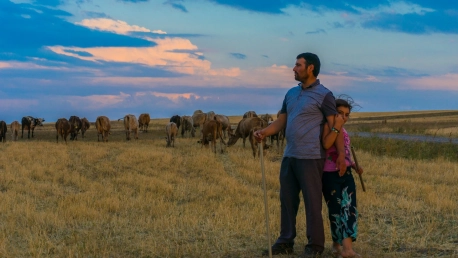The shift to online marketplaces has brought significant convenience and opportunity for farmers, allowing them to buy and sell products with ease. However, this digital transition has also made farmers more susceptible to a variety of fraudulent activities. Scammers exploit platforms like Facebook Marketplace, Pre-loved, and Gumtree to target unsuspecting individuals, leveraging the local advertising model that often involves direct personal interactions. This model can make users vulnerable to scams when not approached with caution. It is crucial for farmers to be aware of these risks and adopt strategies to safeguard their personal and financial information.
Importance of Protecting Personal Information
One of the primary dangers farmers face when engaging in online marketplaces is the potential exploitation of their personal information. Scammers can manipulate details such as addresses, phone numbers, and financial information to commit crimes. Sharing such information openly on these platforms can provide fraudsters with the tools they need to carry out identity theft or financial fraud. Farmers should exercise caution by limiting the disclosure of sensitive details. This includes being wary of who they share their home address with and using pseudonyms or business addresses when possible. Additionally, verifying the identity of the other party before proceeding with a transaction can go a long way in preventing fraud.Despite the prevalence of genuine users on online marketplace platforms, the risk of encountering fraudulent buyers or sellers remains significant. Farmers should consider making transactions through approved auction houses that offer an added layer of security and privacy. These auction houses can mediate the transaction, ensuring that payments are secure and personal information remains protected. By using such intermediaries, farmers can reduce their exposure to fraudulent activities and maintain control over their private details. Taking these precautionary steps is essential in mitigating the risks associated with online transactions in the agricultural sector.
Safety Precautions During Online Transactions
When conducting transactions online, farmers should consider implementing a series of safety precautions to protect themselves from fraudulent activities. Over-sharing on social media, for example, can make one a target for scammers. By divulging details about property or asset purchase timings, farmers inadvertently provide criminals with valuable information that could be used to orchestrate scams. Being mindful of what is shared online and maintaining a level of anonymity can prevent such incidents. Moreover, when arranging to meet buyers or sellers, farmers should avoid secluded locations and opt for public, well-lit areas to ensure personal safety.Additional measures can further enhance security during transactions. Limiting the disclosure of home addresses helps protect against potential fraud. Instead, verifying collection or delivery locations before sharing any personal information adds another layer of security. Farmers should also avoid letting buyers inside their homes, which could expose them to theft or other dangers. Bringing a support person during transactions can provide added security and deter potential scammers. Keeping one’s schedule private and avoiding revealing personal activities or information unintentionally are also crucial steps. Furthermore, farmers might consider distance selling as a safer alternative, as it allows for transactions to occur without direct personal interaction.
Minimizing Risks Through Vigilance and Proactive Measures
The move to online marketplaces has brought considerable convenience and opportunities for farmers, allowing them to conduct transactions with greater ease and efficiency. This digital evolution has made it simpler for farmers to buy and sell their products. However, this convenience does come with a downside, as it increases the risk of falling victim to various fraudulent activities. Scammers often exploit platforms such as Facebook Marketplace, Pre-loved, and Gumtree, taking advantage of the local advertising models that typically involve direct person-to-person interactions. These interactions can make users more vulnerable to scams if they do not approach them cautiously. Consequently, it is essential for farmers to be vigilant about these risks and to take proactive measures to protect their personal and financial information. By staying informed and adopting safe online practices, farmers can better navigate the digital marketplace, maximizing benefits while minimizing potential pitfalls associated with fraud.









